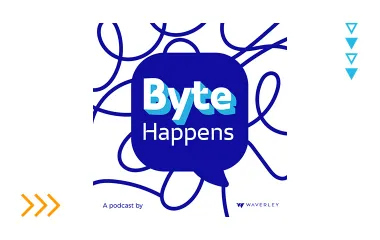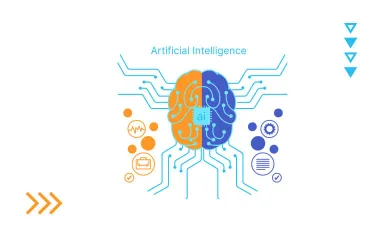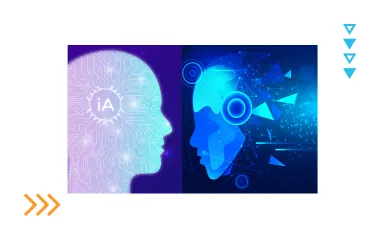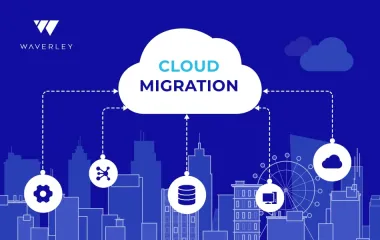From Cold Calls to AI-Assisted Dialing: Lessons from Tendril’s Founder
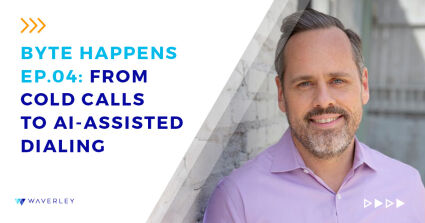
Outbound sales are undergoing a massive shift—and not just because of AI. For Jonathan Elhardt, Founder and CEO of Tendril, the transformation began long before the hype. It started with a real problem inside a real sales team… during one of the most disruptive times in modern business.
In this episode of Byte Happens, host Flavia Taborga talks with Jonathan about his unconventional path, how Tendril was born, and where he sees the future of sales tech heading.
Contents
- A Career Built on the Front Lines of Sales
- A Turning Point During the Pandemic
- Building Tendril: A Hybrid Human + Tech Model
- Culture as a Competitive Advantage
- Navigating the New Realities of Data and Deliverability
- Where AI Fits—And Where It Doesn’t
- Advice for Founders Building Tech-Enabled Products
- The Future of Human-Centered Sales Tech
A Career Built on the Front Lines of Sales
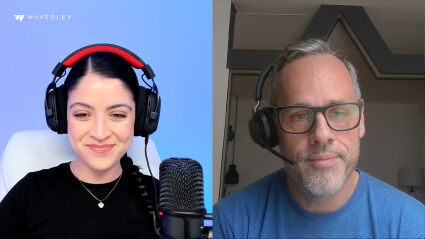
Jonathan’s path began in traditional inside sales: cold-calling, booking meetings, and eventually leading programs as a VP at an outsourced sales firm. After working with hundreds of teams across industries, he noticed recurring issues—messy data, inconsistent processes, and a general struggle to build scalable outbound systems.
Those insights led Jonathan to start his own consulting practice in 2017, helping startups and mid-size companies improve their outbound efforts.
Then the pandemic hit.
A Turning Point During the Pandemic
One consulting client, selling software to schools, relied heavily on phone outreach. Before COVID-19, the strategy thrived. But once schools shut down, phone contact rates collapsed. To survive, the team needed a way to dramatically increase outbound volume.
Jonathan began experimenting with dialing technologies. They improved reach but brought new challenges: latency, awkward transitions, and poor communication between agents. When he mentioned these issues to his colleague Rodrigo Alarcón, a simple idea emerged:

That question became the seed for Tendril.
Building Tendril: A Hybrid Human + Tech Model
Fast-forward four years, and Tendril has grown to more than 75 employees and over 100 customers. At its core is agent-assisted dialing, a model that combines automation with skilled human agents.
Here’s how it works:
- Four agents support each seller.
- Agents navigate phone trees and speak with receptionists.
- When they reach the right prospect, the call transfers instantly to the salesperson.
- Because of this support, one rep can make ~150 calls per hour, with 8–10 real conversations.
The key insight:
Most dialers skip phone trees—leaving large portions of the market untouched.
Tendril’s hybrid approach turns that gap into an opportunity.
Culture as a Competitive Advantage
While Tendril is a U.S.-based company, its cultural heartbeat is in Mexico, where most of the team works. Jonathan highlights how the work ethic, ownership mentality, and genuine warmth of Mexican teams shaped Tendril’s identity.
What started as a tech initiative became a people-driven organization. This nearshore talent model has become one of Tendril’s biggest advantages, enabling scale, quality, and consistency.
Navigating the New Realities of Data and Deliverability
Modern outbound teams face new challenges—ones that didn’t exist a few years ago:
1. Declining data quality
People change jobs frequently, meaning contact lists go stale faster than ever.
2. Email deliverability crackdowns
Google and Yahoo’s new spam policies have made cold outreach more difficult and less predictable.
3. AI-generated noise
Buyers are bombarded with automated messages, many of them written by AI tools.According to Jonathan, this is the moment when companies must evolve. Enriched data, more precise targeting, and more human outreach matter now more than ever.
Where AI Fits—And Where It Doesn’t
Jonathan is optimistic about the future of AI in sales, especially in improving workflows such as phone-tree navigation (something Tendril aims to automate soon). But he’s also realistic: many current tools are just language-model wrappers with polished branding.
AI can enhance the work, but it can’t replace the uniquely human aspects of sales:
- Building trust
- Reading nuance
- Navigating complex stakeholders
- Creating shared understanding
As Jonathan says, “People buy from people they like—and no one says they ‘like’ an AI the way they like a real human.”
Advice for Founders Building Tech-Enabled Products
For non-technical founders or anyone designing tech-enabled services, Jonathan offers a powerful mindset shift:

His recommendations:
- Keep the user (the human) at the center.
- Build what solves real problems, not what sounds impressive.
- Grow culture deliberately—authenticity scales better than slogans.
- Let people be themselves; don’t hide accents, backgrounds, or individuality.
Authenticity, he believes, is a strategic advantage.
The Future of Human-Centered Sales Tech
Outbound sales will continue to evolve, shaped by AI breakthroughs, data challenges, and new communication norms. But Tendril’s story offers a clear lesson: the future isn’t machines replacing people.
It’s technology that amplifies the human experience.
The companies that win will be the ones that stay human-first—using automation to open more doors, create more conversations, and build deeper trust at scale.
Want to watch the conversation with Jon Elhardt? Watch the episode of Byte Happens here.
You can follow Tendril at:
Website: https://www.tendril.us/
LinkedIn: https://www.linkedin.com/company/tendrilllc/
Tune in to Byte Happens and explore the human side of technology with the pioneers shaping our digital future!

